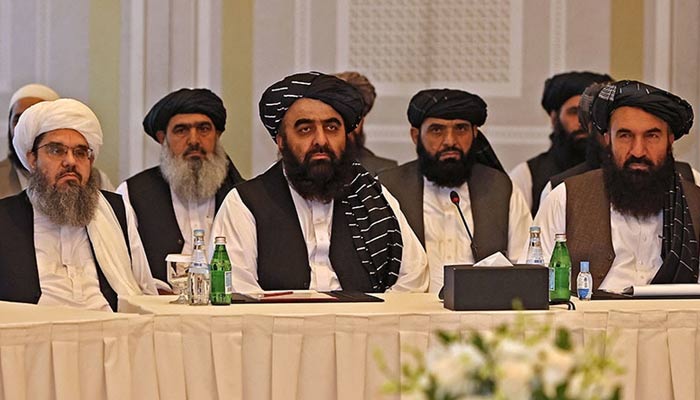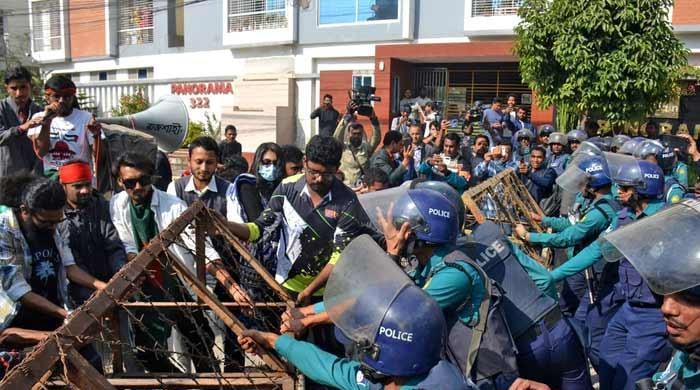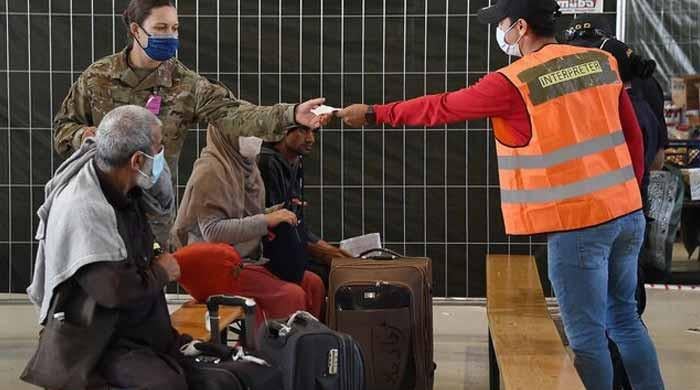Taliban warn US, EU of economic refugees if Afghanistan sanctions continue
'We urge world countries to end existing sanctions and let banks operate normally,' says acting Foreign Minister Amir Khan Muttaqi
October 13, 2021

- "We urge world countries to end existing sanctions and let banks operate normally," says Amir Khan Muttaqi.
- European countries are concerned that if the Afghan economy collapses, a large number of migrants will set off for the continent.
- Washington and EU have said they are ready to back humanitarian initiatives in Afghanistan.
KABUL: The US and European envoys have been warned by Afghanistan's new Taliban government that continued attempts to pressure them through sanctions will undermine security and could trigger a wave of economic refugees.
Acting foreign minister Amir Khan Muttaqi told Western diplomats at talks in Doha that "weakening the Afghan government is not in the interest of anyone because its negative effects will directly affect the world in (the) security sector and economic migration from the country", according to a statement published late Tuesday.
The Taliban overthrew Afghanistan's former US-backed government in August after a two-decade-long conflict, and have declared an Islamic emirate governed under the movement´s hardline interpretation of religious law.
But efforts to stabilise the country, still facing attacks from Daesh have been undermined by international sanctions: banks are running out of cash and civil servants are doing their jobs unpaid.
According to the statement from his spokesperson, Muttaqi told the Doha meeting: "We urge world countries to end existing sanctions and let banks operate normally so that charity groups, organisations and the government can pay salaries to their staff with their own reserves and international financial assistance."
European countries in particular are concerned that if the Afghan economy collapses, a large number of migrants will set off for the continent, piling pressure on neighbouring states such as Pakistan and Iran and eventually on EU borders.
Washington and the EU have said they are ready to back humanitarian initiatives in Afghanistan, but are wary of providing direct support to the Taliban without guarantees it will respect human rights, in particular women's rights.









